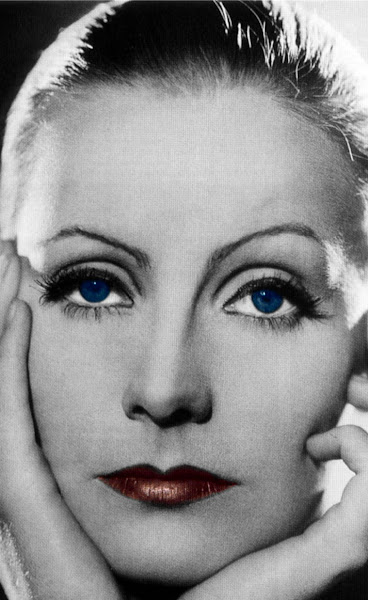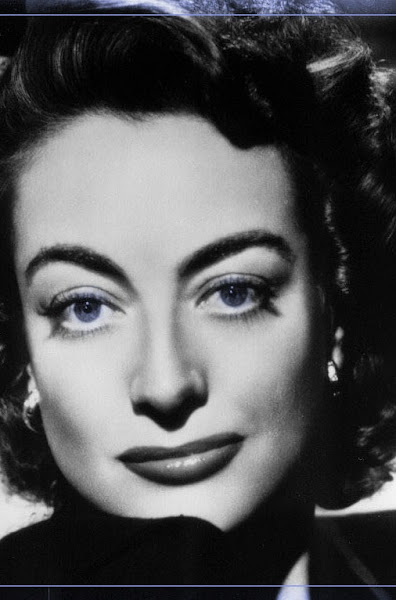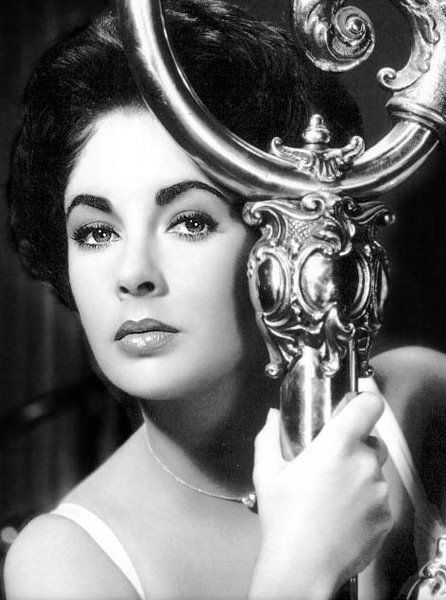I probably should not even bother, but I since I feel implicated, I suppose I should respond. To this morning's random musing, BIG HOLLYWOOD Editor-in-Chief John Nolte has offered these "gems":
I feel grossly misrepresented, especially because I am not at all recommending some "Production Code." (I doubt @rejectnation, also known as FILM SCHOOL REJECTS, recommends the same.) Nolte seems like an educated man, so he should be aware that, for decades, "homosexuals" could not be portrayed at all on film due to Hollywood's self-censorship system, the Hays Code (adopted in 1930, abandoned in 1968). Occasionally, films of the time period — especially those of Alfred Hitchcock, including "Rebecca" (1940) and "Rope" (1948) — toyed with these regulations and tenuously bent the symbolic order to the point of breaking before returning hastily to a normative (i.e. "moral") conclusion. When the Hays Code was greatly enervated by the late 1950s, the first gay character debuted on film: the character Sebastian (whose face one never sees) in the film "Suddenly, Last Summer" (Joseph L. Mankiewicz, 1959). Gay people enjoyed their first representation on film... and they never saw him. Just like in real life, gay people were still marginalized — finally "inside," but nonetheless "outside" the film frame. It has taken years for gay, lesbian, bisexual, transgender, and queer characters not to be popularly represented as victims, monsters, killers, deviants, minstrels, "screaming queens," and/or menaces to society. In 2010, "The Kids Are All Right" was released to much acclaim for its kind portrayal of contemporary lesbian motherhood. A recent survey found that 0% — yes, zero out of one-hundred — of children were "unhappy" in a home with gay or lesbian parents. Seems telling enough to me.
I say all of this to provide some historical evidence for why — let us make no mistake — I am opposed to the practice of censorship in Hollywood film. My representations as a white gay man have much at stake. I fully support the (we will call it) "cinematic liberty" of filmmakers to cull what they want from life itself — no matter how bold or offensive — and to represent that in the film medium (Derek Cianfrance's "Blue Valentine" comes to mind). I recommend that filmmakers represent whatever they would like and not worry about another person telling them what they cannot do. You will notice that the single thing that Landon Palmer and I rebuke is one "gay = stupid" joke. One instance does not widespread "censorship" make. "Gay = stupid" has heretofore been dominant, mainstream, and condoned, whereas, in some circles, gay people themselves are still not. All Palmer was doing in the first place was commenting on how fascinating it was that now, in 2010, people are suddenly talking about how "gay = stupid" is no longer okay. What I, as a maligned citizen, propose is that filmmakers simply be more considerate to people of identities that are still crushed in the wheels of society.
I should mention that I will not stop watching films by Ron Howard or Vince Vaughn. They have the right to imply "gay = stupid," even if it offends me. For that matter, I shudder at the idea of composing any "blacklist" because Sen. Joseph McCarthy's red "witchhunt" of the late 1940s/early 1950s destroyed the lives of some of Hollywood's best and brightest actors, producers, directors, screenwriters, etc., even causing the early death (by heart attack) of actor John Garfield (may he rest in peace). If anyone is/was a "fascist," it is/was McCarthy.
If I find anything else offensive, it is that straight John Nolte sits in his cozy arm chair in his white bourgeois lifestyle, comfortably typing up vitriol on his classy home computer. What does he know about gay people or the enormous pressure under which we live? I am certainly one of the more radical members of our community. My scholarly research interests comprise LGBTQ film and media studies, queer theory and film, non-normative sexual practices in the cinema, pleasure, desire, and film spectatorship (especially "cinesexuality"), and LGBTQ discourse. Does that sound like a "fascist" to you, especially since, during World War II, the prototypical fascist, Hitler, sent homosexuals like me to death camps with the Jews and other "undesirables"? Do I sound interested in censorship especially if I enjoy researching "non-normative sexual practices in the cinema"? If John Nolte needs anything "straight," it is his facts.
Their historical counterparts have already done too much damage to our world, and I refuse to be complicit in that just because I continue to defend Palmer's right to say that (and the general use of) "gay = stupid" in Hollywood film is indeed no longer okay.
Read more...
Hey @bengrimwood, what else is on your NEW PRODUCTION CODE? What else aren't movies allowed to do? Do offenders go on a BLACKLIST?
@rejectnation & @Bengrimwood have a NEW HOLLYWOOD PRODUCTION CODE for us. What movies can & can't do. Its not fascism its sensitivity!
Remember folks, when @bengrimwood & @rejectnation tell u what u can't say, it's not fascism when it's FOR THE CHILDREN. #OrwellSmiles
I feel grossly misrepresented, especially because I am not at all recommending some "Production Code." (I doubt @rejectnation, also known as FILM SCHOOL REJECTS, recommends the same.) Nolte seems like an educated man, so he should be aware that, for decades, "homosexuals" could not be portrayed at all on film due to Hollywood's self-censorship system, the Hays Code (adopted in 1930, abandoned in 1968). Occasionally, films of the time period — especially those of Alfred Hitchcock, including "Rebecca" (1940) and "Rope" (1948) — toyed with these regulations and tenuously bent the symbolic order to the point of breaking before returning hastily to a normative (i.e. "moral") conclusion. When the Hays Code was greatly enervated by the late 1950s, the first gay character debuted on film: the character Sebastian (whose face one never sees) in the film "Suddenly, Last Summer" (Joseph L. Mankiewicz, 1959). Gay people enjoyed their first representation on film... and they never saw him. Just like in real life, gay people were still marginalized — finally "inside," but nonetheless "outside" the film frame. It has taken years for gay, lesbian, bisexual, transgender, and queer characters not to be popularly represented as victims, monsters, killers, deviants, minstrels, "screaming queens," and/or menaces to society. In 2010, "The Kids Are All Right" was released to much acclaim for its kind portrayal of contemporary lesbian motherhood. A recent survey found that 0% — yes, zero out of one-hundred — of children were "unhappy" in a home with gay or lesbian parents. Seems telling enough to me.
I say all of this to provide some historical evidence for why — let us make no mistake — I am opposed to the practice of censorship in Hollywood film. My representations as a white gay man have much at stake. I fully support the (we will call it) "cinematic liberty" of filmmakers to cull what they want from life itself — no matter how bold or offensive — and to represent that in the film medium (Derek Cianfrance's "Blue Valentine" comes to mind). I recommend that filmmakers represent whatever they would like and not worry about another person telling them what they cannot do. You will notice that the single thing that Landon Palmer and I rebuke is one "gay = stupid" joke. One instance does not widespread "censorship" make. "Gay = stupid" has heretofore been dominant, mainstream, and condoned, whereas, in some circles, gay people themselves are still not. All Palmer was doing in the first place was commenting on how fascinating it was that now, in 2010, people are suddenly talking about how "gay = stupid" is no longer okay. What I, as a maligned citizen, propose is that filmmakers simply be more considerate to people of identities that are still crushed in the wheels of society.
I should mention that I will not stop watching films by Ron Howard or Vince Vaughn. They have the right to imply "gay = stupid," even if it offends me. For that matter, I shudder at the idea of composing any "blacklist" because Sen. Joseph McCarthy's red "witchhunt" of the late 1940s/early 1950s destroyed the lives of some of Hollywood's best and brightest actors, producers, directors, screenwriters, etc., even causing the early death (by heart attack) of actor John Garfield (may he rest in peace). If anyone is/was a "fascist," it is/was McCarthy.
If I find anything else offensive, it is that straight John Nolte sits in his cozy arm chair in his white bourgeois lifestyle, comfortably typing up vitriol on his classy home computer. What does he know about gay people or the enormous pressure under which we live? I am certainly one of the more radical members of our community. My scholarly research interests comprise LGBTQ film and media studies, queer theory and film, non-normative sexual practices in the cinema, pleasure, desire, and film spectatorship (especially "cinesexuality"), and LGBTQ discourse. Does that sound like a "fascist" to you, especially since, during World War II, the prototypical fascist, Hitler, sent homosexuals like me to death camps with the Jews and other "undesirables"? Do I sound interested in censorship especially if I enjoy researching "non-normative sexual practices in the cinema"? If John Nolte needs anything "straight," it is his facts.
I am not a "neo-fascist."
I do not support a new Hollywood "production code."
I do not support a new Hollywood "blacklist."
I do not support a new Hollywood "production code."
I do not support a new Hollywood "blacklist."
Their historical counterparts have already done too much damage to our world, and I refuse to be complicit in that just because I continue to defend Palmer's right to say that (and the general use of) "gay = stupid" in Hollywood film is indeed no longer okay.
.jpg)

.jpg)
.jpg)




